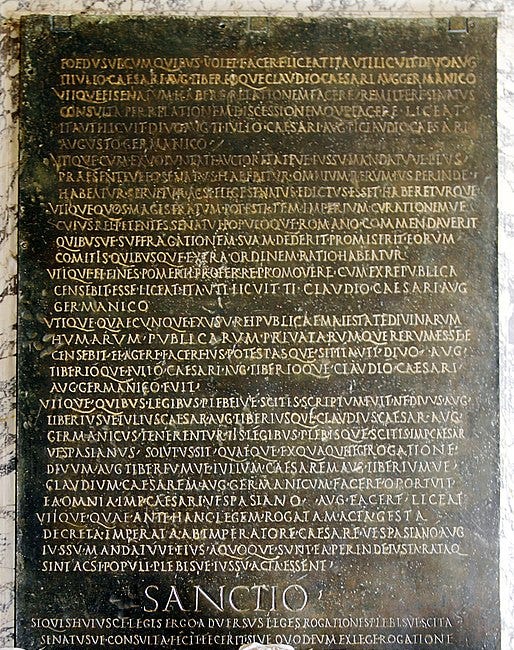Here at The New Digest, we are alert to bring classical legal theory to bear on current affairs. In honor of “No Kings Day” — although, we must admit, perhaps not entirely in the spirit of that event as understood by its organizers — we have collected for our readers some of our previously published essays on the authority of kings and princes within, and over, the constitutional order. Enjoy!
A paper by Vermeule on the foundations of the rule of law itself in the Marian “fiat” of the Prince:
The Fiat of the Prince
Stained Glass, Benedictine Abbey of Keizersberg (Mont César), Leuven (Louvain). On the right, the Emperor Charles V offers his crown to the Virgin and Child.
A paper by Casey on classical legal presumptions, which are deemed in law to please the Prince:
What Pleases the Prince is Peace and Justice
A deeply impressive legacy of the classical legal tradition was the capacity of its leading jurists to convincingly reconcile two competing imperatives of good government: how to both empower and constrain the State so that it is ordered to the common good
A reading list on the “Mirror of Princes” literature:
“The Mirror of Princes”: A Reading List
·The “Mirror of Princes,” advice to rulers on the virtues proper to rulers and (therefore) on prudent government, is an endlessly fascinating but slippery and ill-defined genre. Taken too expansively, as in this overly-inclusive list, it could encompass a large fraction of political and constitutional theory before the advent of methodological positivism…
4. A discussion of The Constitutions of Melfi of Frederick II Hohenstaufen, focusing on its elegant justification for the combination of powers in one set of hands:
On the Combination of Powers in the Executive
·The passage below is from the Liber Augustalis, also known as the Constitutions of Melfi, a law code promulgated by Frederick II Hohenstaufen for his Sicilian domains in 1231. Among other things, this extremely rich passage provides a terse and partly implicit argument for combining the power to make law and the power to enforce law in one set of hands …
5. And last but certainly not least, a catalogue raisonné on the Dominus Mundi and the classical law of Empire.
Dominus Mundi: The Law, Politics and Theology of Empire
·Rérum gestárum díví Augusti, quibus orbem terrarum ímperio populi Rom. subiécit (“The deeds of the Deified Augustus, by which he subjected the whole world to the sovereignty of the Roman People”)








